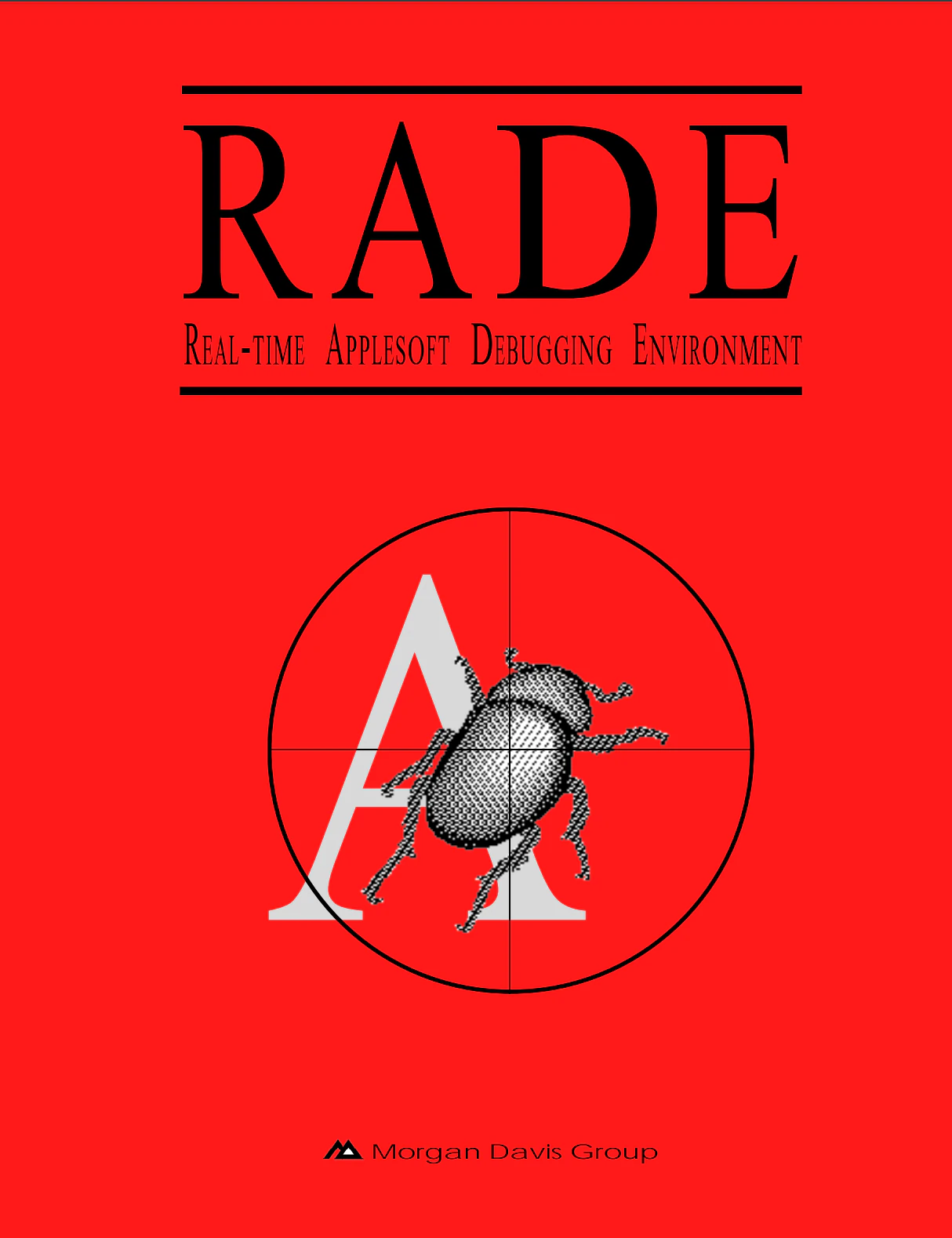The Frustration of Debugging Applesoft BASIC
Applesoft BASIC was both a blessing and a curse for Apple II programmers. It provided an accessible way to write programs, but debugging them was an exercise in patience and frustration. Unlike modern development environments, Applesoft BASIC lacked essential debugging tools. There was no built-in way to step through code, set breakpoints, or inspect variables dynamically.
The Struggle Without RADE
If you made a mistake in your program, finding it was a painstaking process. The best you could do was insert PRINT statements throughout your code to check variable values at different points, but this was messy and often interfered with your program’s normal execution. Syntax errors were easy enough to catch, but logic errors—especially those involving variables or loops—were a nightmare to track down.
To make matters worse, Applesoft BASIC used line numbers instead of structured blocks, making code harder to read and modify. A single misplaced GOTO or GOSUB could send your program into an infinite loop or an unexpected crash, and without tools to analyze execution flow, programmers were left guessing where things went wrong.
Enter RADE: A Game-Changer for Apple II Programmers
RADE—the Real-time Applesoft Debugging Environment—changed everything. It allowed programmers to explore a BASIC program’s internals in real time, inspecting variables, monitoring program flow, and setting breakpoints without disturbing the program’s memory or screen display.
This meant no more littering code with PRINT statements or manually retyping lost program lines. Instead, with RADE’s powerful features like stepping, tracing, and breakpoints, debugging became quick and painless. Even proficient programmers found themselves relying on RADE to squash elusive bugs.
InCider/A+ magazine praised RADE:
“RADE is fast, powerful, full-featured, and easy to use. It’s a breath of fresh air . . . a throwback to the days of tight, efficient programming.”
The Story Behind RADE
RADE was a collaborative effort between Russell Gibson and me. We conceived and developed it during the summer of 1992, with Russ handling the programming and me taking care of everything else. Our workflow relied heavily on electronic mail via the ProLine network, ensuring steady progress. In fact, Russ and I never met face-to-face until after RADE and its manual were completed!
Our hard work paid off—RADE received great reviews and became an indispensable tool for serious Apple II developers. It was also the last Apple II product MDG introduced, marking the end of an era in which we pushed the limits of what the Apple II could do.
Download RADE
Disk
Download RADE-1.0.2mg (800K Apple ][ 2IMG Disk Image)
Manual
Download RADE-1.0.pdf (450K PDF - 48 pages)
Other Formats
Download RADE-1.0.img (800K DiskCopy image)
